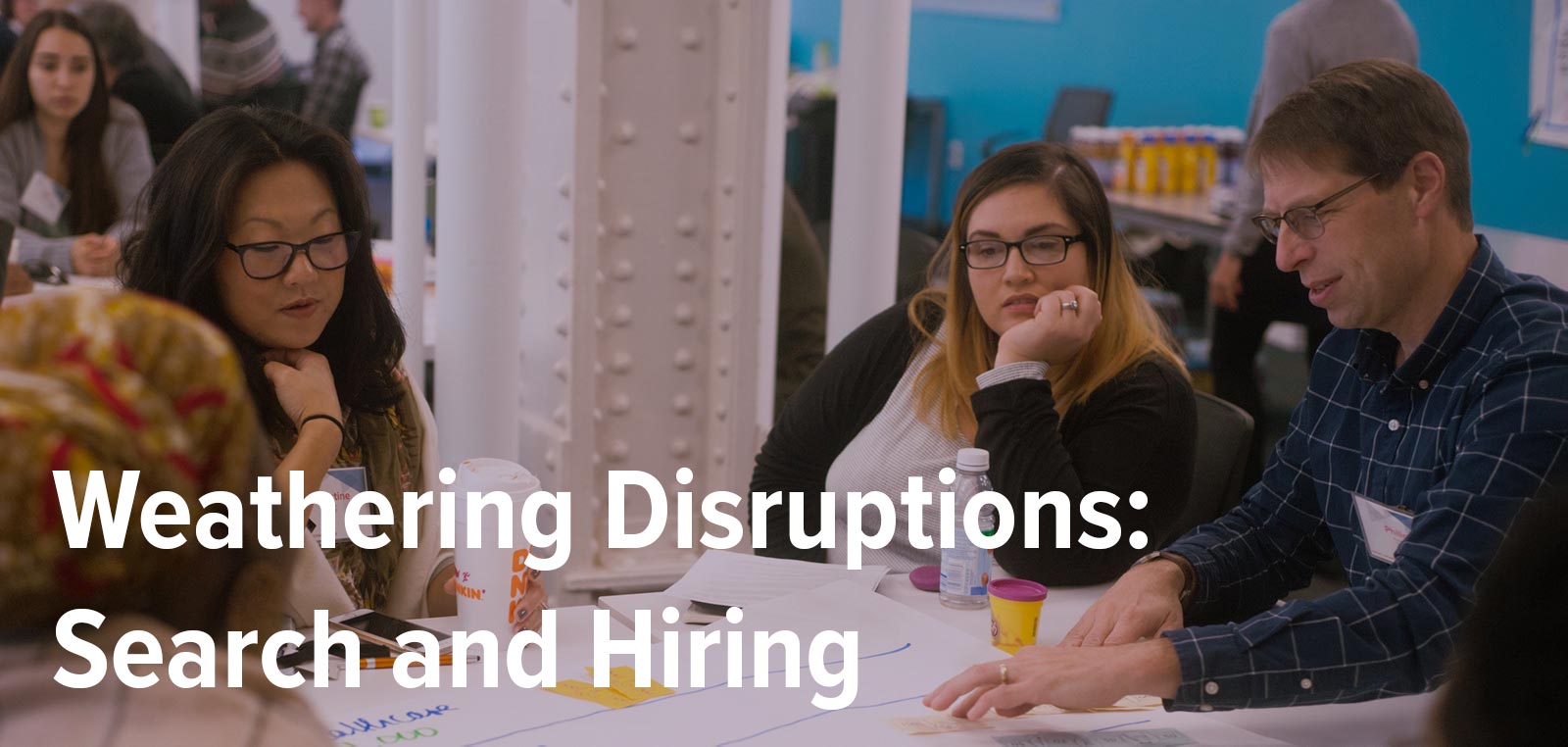The consulting team at TSNE recognizes that we are all living through a challenging time, and that operational, financial, and emotional disruptions paired with uncertainty about what will happen next is creating complexity for us all. Our goal in sharing this and future resources is to use our team’s expertise and experience to help make the way forward a little clearer for nonprofits.
3 Steps for Assessing What is Best for Your Organization Right Now — And Over the Long Term
Staff transitions, especially those involving senior leaders of nonprofits (CEOs, EDs, etc.), are complex and pivotal moments in an organization’s lifecycle, even without the added layer of a worldwide heath crisis. The recommendations below are based on our experience in leading and facilitating executive search projects.
Managing through an executive search process at this time of significant and rapid change requires adaptability, creativity, and sensitivity in process and approach. This may mean continuing with the process now, holding until a later date, and/or adapting your process and expectations. Much depends on your organization’s current situation and resources, as well as those of the board, staff, departing executive, and external candidates.
1. Consider Your Timeline and Review Your Process Options
Are you launching a search, in the middle of the process, or at the end? Do you have the flexibility to pause the process or do other conditions necessitate that you continue? Are you willing/able to conduct a full virtual hire? To adjust, consider the following:
- Add remote interview rounds with the search committee conducted via phone or video, including final interviews and onboarding.
- Supplement remote interview vetting by adding a final interview stage with pre-interview assignments and presentations. For example, ask them to present on their approach to leadership and management.
- If you are in the early stage of launching a search process, opt to move ahead under the assumption that interviews are projected to occur a month or two in the future, when in-person meetings may be possible, with the commitment to periodically reassess the process and COVID-19 situation as they unfold.
2. Understand the Organization’s Immediate Internal Supports and Demands
Assess the capabilities of the staff and board to step up and into other areas of support, as well as the status of the organization’s finances, development plans, and programmatic activities as impacted by COVID-19. Speak with your outgoing executive about the flexibility of their departure date. Keep the following in mind:
- Know where you can and cannot flex in your organization. This will help guide your decision to proceed or hold with a search process, as well as the profile of the person you are looking to hire.
- Many organizations may put executive departures on hold while they respond to the current crisis, but this is not always possible. In these cases, boards must assess how they can step into temporary leadership roles as needed.
- Understand the overall financial and budgetary implications of hiring an external search partner and a new executive. Consider whether you can bring parts of the search process in-house as a way to reduce costs.
- Work with your external search partner to adapt and customize the search process given the COVID-19 crisis. This helps make it possible to retain a search consultant for some aspects of the process and reduce costs, all while ensuring a successful hire.
3. Determine What External Factors Are at Play
The impacts from the COVID-19 crisis vary from organization to organization and individual to individual. For some organizations, the crisis can mean an increase in demand for services while others are experiencing funding reductions and programmatic challenges. Individuals are experiencing a range of impacts on their personal finances and employment. Make the following considerations:
- Are potential candidates in your field willing to leave their respective organizations at this time? Passive candidates (those currently in roles) may be more reluctant to leave their current jobs and organizations during the crisis.
- Other qualified candidates may be ready to engage in a new opportunity if they are in — or anticipate — downsizing, furlough, or unemployment. There may be an increase in the pool of interested, available, and qualified candidates due to unprecedented levels of unemployment.
- Ask yourself if the current crisis has impacted the job description you have developed for your potential hire. Have the responsibilities and qualifications for the role — and the type of candidate being sought — changed because of the COVID-19 crisis?
- Are there policy or legislative changes and supports that may be available to the organization to help offset new financial implications?
At this time, the capacity and attention of individuals is especially stressed. Realize that the expectations you set and the course you chart during a hiring process are indicators to candidates about the organizational values, culture, and support provided to employees. If you proceed with your search, understand what the revised expectations are for the search committee members, board, and staff, and determine in advance how the organization can best support them. Expect that each step in this process will likely take longer under the circumstances and practice patience and adaptability.
Large societal events (think the financial crisis of 2008) have affected the way we work and interface with others. Being curious, adaptable, and nimble to those changes can add to our sustainability as nonprofits and individuals. As we navigate through this time, it is helpful to consider what trends might emerge after this particular crisis is abated and how it might impact organizations and hiring processes in the future. Taking those considerations now, will give you a clearer sense of how you function in a post-COVID-19 world.
